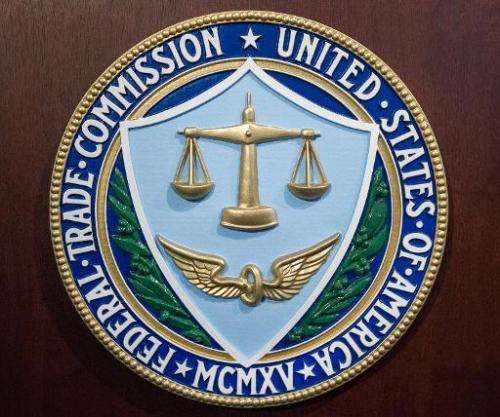US seeks light on shadowy online data collection

US regulators called Tuesday for more transparency from data brokers, citing potential for abuse in a rapidly growing industry that buys and sells information on people's Internet and offline activities.
A study by the US Federal Trade Commission said the industry collects vast amounts of potentially sensitive data on ethnicity, income, religion, political leanings, age, and health conditions, with little accountability.
"You may not know them, but data brokers know you," FTC chairwoman Edith Ramirez said in a conference call with media.
"They know where you live, what you buy, your income, your ethnicity, how old your kids are, your health conditions, and your interests and hobbies."
The FTC urged Congress to consider legislation to allow consumers to learn of the existence and activities of data brokers and allow them to review and correct inaccurate information.
"This is an industry that largely operates in the dark," Ramirez said.
"Most consumers have never heard of the data broker industry, let alone the names of even the largest data brokers."
Ramirez said Congress should consider rules that allow consumers to use a central database to find information being gathered and to correct misinformation.
"Data brokers collect and store billions of data points about nearly every US consumer, which they use to compile extensive profiles about us," the FTC chief said.
"This information comes from widespread sources—sources as varied as social media posts, Census data, retailers, and (motor vehicle) and real property records.... If a consumer wanted to trace the original source of a data broker's information about her, she would have to sift through a complex maze of companies."
Ramirez said the recommendation "would not limit the ability of data brokers to continue to provide important products and services," which she said can "benefit businesses, consumers, and our economy more generally."
The nine data brokers studied by the FTC were Acxiom, Corelogic, Datalogix, eBureau, ID Analytics, Intelius, PeekYou, Rapleaf, and Recorded Future.
Ramirez said the data broker industry can hurt consumers in several ways—by categorizing them as poor credit risks, or with health issues that may affect their careers, even if the information is inaccurate.
"Another concern is that a cell phone company may not let me get a cell phone contract because a data broker product suggests I'm an identity thief," she said.
"If this is a mistake, I may have no way to learn about the source of the problem, let alone fix any incorrect information."
The Center for Digital Democracy, an activist group focused on privacy, welcomed the FTC study but said the recommendations failed to go far enough.
A blog post by the group called the FTC report "a powerful and disturbing privacy wake-up call," but said "the commission's calls for greater transparency and consumer control are insufficient."
"The real problem is that data brokers—including Google and Facebook—have embraced a business model designed to collect and use everything about us and our friends, 24/7. Legislation is required to help stem the tide of business practices purposeful designed to make a mockery out of the idea of privacy for Americans," the group said.
© 2014 AFP
















